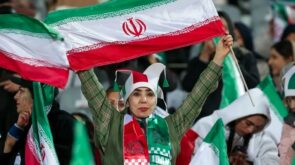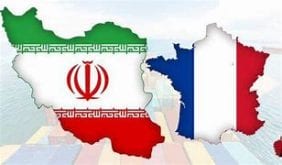Iran-HRM – The Iranian regime’s judiciary has a documented history of banishing into prison exile those held for politically motivated reasons.
By sending prisoners to exile, judicial authorities seek to isolate prisoners, and escalated pressure on them as a form of additional punishment.
The practice of sending prisoners into prison exile is also unlawful and could be challenged in the Supreme Administrative Court, as it violates Note 3 of Article 513 of the Code of Criminal Procedure, which states that prisoners should serve their terms in prisons close to where they live.
Imprisonment along with exile, in which a prisoner has to serve his sentence away from his place of residence, is itself a form of torture and affects the prisoner’s family.
In the Iranian regime’s law, the concept of exile or banishment is rooted in Shia theology and referred to as nafye balad (literally “denial of country”).
According to the Islamic Penal Code some charges such as moharebeh, are panishable by execution, cross amputation (amputation of the right arm and left leg) , as well as nafye balad. (Islamic Penal Code – Chapter 8, Article 282)
Nevertheless, the regime’s judiciary has sent several political activists to prison in exile.
Currently political prisoners including peaceful activists, religious minorities, and dissidents are being sent to remote, severely under-resourced prisons as a form of additional punishment.
The clerical regime also violated the principle of separation of crimes by banishing political prisoners to remote prisons and among ordinary convicts.
Iran HRM has documented several cases of political prisoners being sent into prison exile.
Political prisoner Hamzeh Savari has been banished to Raja’i Shahr prison in Karaj since 2013. He has been serving a life sentence on the charge of “Moharebeh and action against national security.”
Kurd political prisoner Changiz Ghadamkheiri has been banished to Masjed Soleiman in southwest Iran since 2013. He is serving a 40-year prison sentence on the charges of “Moharebeh through cooperation with Komala Party.”
Political prisoner Hamzeh Darvish, has been banished since May 2020 to Lakan Prison in Rasht, northern Iran.
Kurdish political prisoner Zeinab Jalalian has been exiled to the central prison in Yazd, southeast Iran since November 2020, her fourth prison transfer in eight months without explanation. Zeinab Jalalian was sentenced to death in 2009 on the charge of Moharebeh through “membership in PJAK.” The verdict was commuted to life in prison in 2011. She has been in jail without any leaves since 2007, when she was arrested in Kermanshah.
Political prisoner Maryam Akbari-Monfared was exiled from Evin Prison, where she has served more than 11 years of her 15-year sentence, 110 miles east to the central prison in Semnan, an extremely inaccessible location for her children. She has been serving a 15-year prison sentence since 2009 without a single day of leave.
Political prisoner Golrokh Iraee Ebrahimi was transferred on January 24, 2021, from Gharchak Prison to the central prison in Amol, Mazandaran province in northern Iran, far from her parents.
Civil sociery activists Yasaman Ariyani and her mother Monireh Arabshahi, were exiled from Evin Prison to Kachuei Prison in Karaj, west of Tehran on October 22, 2020.
Many Gonabadi Sufi dervishes who were convicted of national security crimes for participating in street protests in Tehran in 2018 have also been exiled to remote locations in Sistan and Baluchistan, South Khorasan, Khorasan Razavi, Bushehr, Kermanshah, Shiraz and Kerman provinces. They include Saeed Sultanpour, Rasoul Hoveida, Akbar Biranvand, Reza Entesari, Saeed Dourandish, Ehsan Malek Mohammadi, Hadi Shahreza, and Kasra Nouri.
 Shabtabnews In this dark night, I have lost my way – Arise from a corner, oh you the star of guidance.
Shabtabnews In this dark night, I have lost my way – Arise from a corner, oh you the star of guidance.



